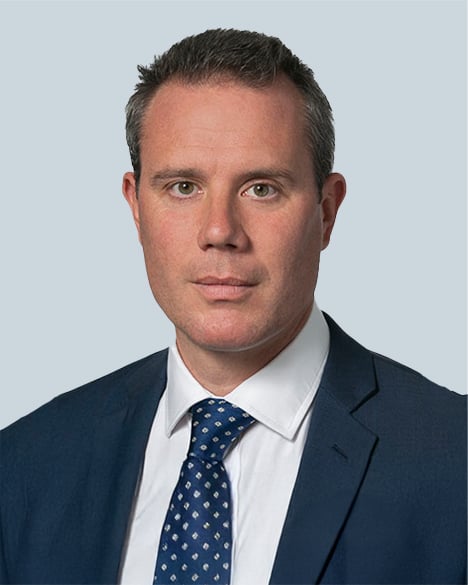Economic uncertainties and presidential health concerns do little to reduce appetite for Nigeria’s sovereign bond.
President Muhammadu Buhari’s official spokesmen are refusing to be drawn on a date for his return to Abuja from London, where he is now in his fifth week of extended sick leave. In his absence, policy drift is exacerbated, longstanding constitutional questions re-emerge, and senior Nigerian politicians must travel to London in hope of an audience. No details about the President’s illness have been disclosed, and newspapers have speculated that he might be dead. Ironically enough, the dilatory pace of decision-making in Nigeria over the two years of his Presidency has led some sources to comment that, dead or alive, it is not easy to tell the difference.
Political and economic challenges
The power vacuum caused by Buhari’s mystery absence comes at a time of wider uncertainties on the Nigerian scene. Progress in the fight against the violent Boko Haram insurgency in the north east, and in securing convictions for a series of massive corruption scandals, has been patchy. More fundamentally, low oil prices and reduced oil productivity a result of systematic theft of crude oil, ageing infrastructure, and sabotage by Niger Delta militants pushed the country into recession last year, with gross domestic product contracting by an estimated 1.6 per cent in 2016. A scarcity of dollars in the system, combined with Buhari’s statist inclinations and resistance to currency reform, has led to a widening gap (now around 40 per cent) between the naira’s official value and the parallel market.
The economic challenges posed by a low oil price and depreciation of the naira have combined to render Nigerian banks heavily exposed to non-performing loans (NPLs). At Kroll, we are seeing increased interest from top tier Nigerian banking groups in our asset tracing and litigation support services, as they seek to recover bad loans from defaulting customers. Borrowers in the Nigerian energy sector, many of them with foreign-currency denominated loans, have been particularly exposed. First Bank of Nigeria (FBN), for example, has seen its NPL ratio increase to 23 per cent, from 4.1 per cent a year earlier. And the outlook, in the short term at least, remains challenging. Rating agency Moody’s expects NPLs across the major Nigerian banks to increase by some 12 per cent in 2017. Whilst many of these borrowing arrangements originate inside Nigeria, our asset recovery work takes us far further afield, typically identifying and seizing houses in London, villas in Dubai, yachts in Monaco and a wide range of international shell companies and offshore accounts.
Investor optimism in the Nigerian economy
But against this somewhat subdued contemporary backdrop, international investor confidence in Nigeria as a long term play remains robust. Such investors frequently engage Kroll for support both to increase their understanding of the country, or to deal with operational and strategic issues despite the current economic headwinds. The scale and sophistication of the Nigerian market generates high levels of interest, and in 2016 Nigeria accounted for just over half of Kroll’s business intelligence casework across Africa.
The fundamentals are certainly attractive. As well as being Africa’s largest oil producer, Nigeria is an agricultural and soft commodities powerhouse, and has substantial under-exploited mineral reserves, with real potential to scale up output. Coupled with its important and diverse services sector, growing consumer markets, and vibrant and entrepreneurial business community, the country continues to attract a wide range of international and regional investors. Indeed, the International Monetary Fund (IMF) predicts that the economy will turn around quickly and return to growth estimated at 2.8 per cent by 2018.
Positive long-term investor sentiment was underscored earlier this month when Nigeria successfully went to the international bond market, raising USD 1 billion, with a coupon of 7.8 per cent. Investor appetite was strong including from amongst leading global financial institutions and the issue was reported to be eight times oversubscribed. The government plans to deploy the proceeds of the bond to catalyse the economic recovery and to support its commitment to deliver infrastructure and capital projects. Assuming the funds are properly managed and allocated a topical cause for concern in several other African markets right now this will be a significant step in the right direction for Nigeria, where infrastructure shortfalls have long been a barrier to fully harnessing the country’s intrinsic entrepreneurial talent and economic vitality.
To see Kroll’s wide-ranging conversation with leading Nigerian investment banker Baloji Balogun of Chapel Hill Denham please click here.
Stay Ahead with Kroll
Forensic Investigations and Monitorships
The Kroll Investigations, Diligence and Compliance team consists of experts in forensic investigations and intelligence, delivering actionable data and insights that help clients worldwide make critical decisions and mitigate risk.
Background Screening, Market Intelligence & Investigative Due Diligence
When organizations worldwide need intelligence, insight and clarity to take decisive action, they rely on Kroll.
